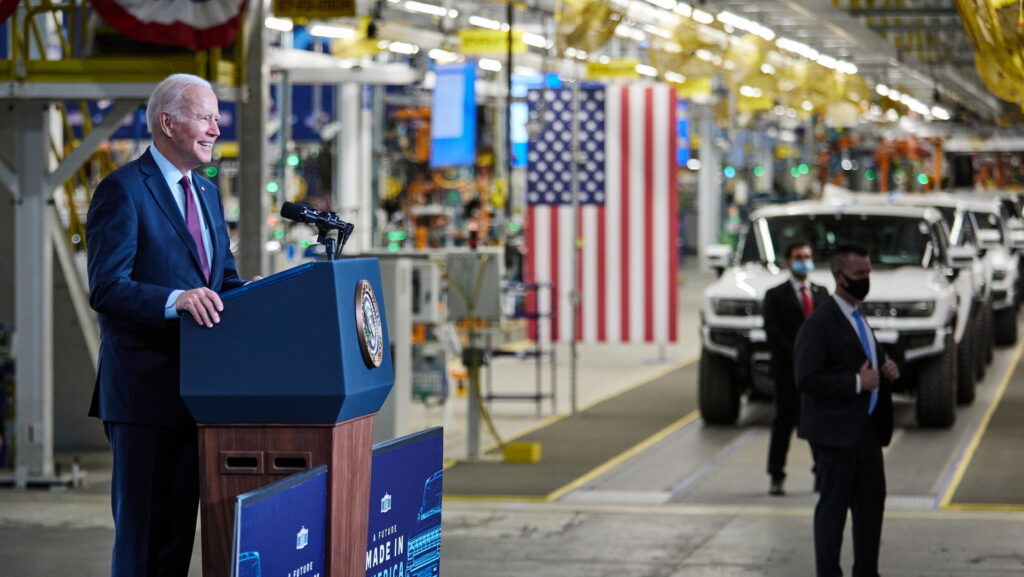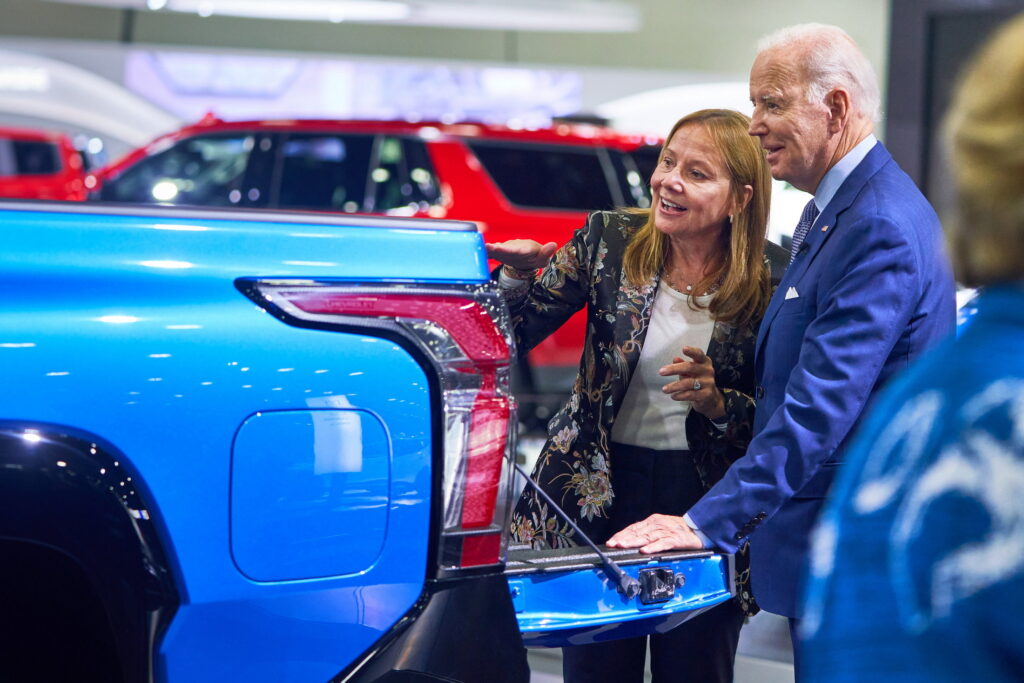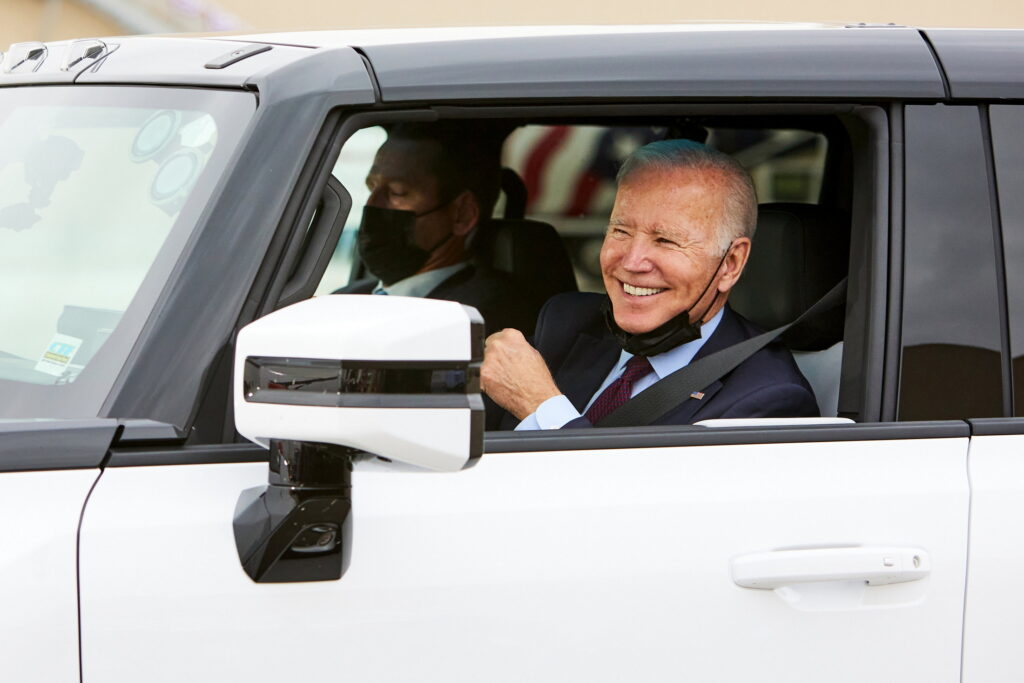The ruling will enable automakers to produce far more combustion cars in 2030 while still meeting CAFE requirements
6 hours ago
 –>
–> 
–>
On Tuesday, the Biden administration revised its final rule regarding electric vehicle mileage ratings, marking a departure from earlier proposals. This shift represents a big win for automakers, as it allows them to adhere to Corporate Average Fuel Economy (CAFE) standards while producing fewer EVs. While the updated regulations still mandate advancements in electrification, they do so at a more gradual pace.
Corporate Average Fuel Economy (CAFE) standards are determined by calculating a production-weighted average of mileage ratings across a manufacturer’s fleet. This means that if the target is, for example, 50 miles per gallon (mpg) across the fleet, some vehicles can achieve lower mileage ratings while others that exceed this threshold compensate for the underperformers.
Electric vehicles get an MPGe rating which also contributes to the overall rating. While MPGe calculations are long due for an update, they can make a big impact on overall CAFE scores. Previous rules were set to reduce the amount that EVs contributed by some 72 percent by the year 2030. In effect, it would require automakers to build more EVs and fewer ICE-powered cars. Now, the Biden administration has relaxed that standard to 65 percent.
More: Toyota And Stellantis Aren’t Happy About The EPA’s Proposed BEV Sales Targets

In practical terms, some estimates suggest that the average automaker’s mix of EV to ICE vehicles can now be 50/50 instead of 60/40 in 2030. That’s big news for an industry that has long been complaining that it would be too hard and too costly to keep up with federal demands. Analysts believe it would’ve cost U.S. automakers roughly $ 10.5 billion in fines had the rules not been relaxed.
Notably, this isn’t the last shoe to drop regarding the auto industry, federal regulation, and the environment this week. The Environmental Protection Agency is also set to release its latest CAFE standards too. How the two will intermix is anyone’s guess for the time being.
Likely, the two rulings will encourage automakers to lean more heavily into plug-in hybrids in the short term. A source from AutoNews believes that having more than 33 percent of a fleet represented by PHEVs is one way to comply with the upcoming rules. It would very likely also keep that automaker well within CAFE standards at the same time.
The entire ruling from the Department of Energy can be found here.


